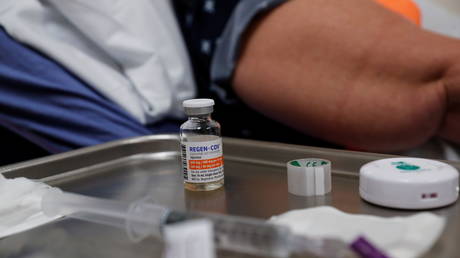
Minnesota public health agency has prioritized non-white residents in rationing of monoclonal antibodies
Minnesota’s state health department has adopted new ethical standards that include considering a person’s skin color in determining who can receive a potentially life-saving treatment for Covid-19 patients.
At issue is allocation of monoclonal antibodies, which have been in hot demand and short supply after proving effective in helping to prevent Covid-19 illnesses from becoming severe. The lab-created antibodies help a patient’s immune system fight disease.
Minnesota’s revised “ethical framework” for rationing of medical care was posted late last week, noting that “race and ethnicity alone, apart from other underlying health conditions, may be considered in determining eligibility” for monoclonal antibody therapies (mAbs). The department cited a finding by the US Food and Drug Administration that race and ethnicity may place Covid-19 patients at elevated risk of progression to severe illness.
Data on such risk provides the “ethical justification” for prioritizing non-white patients, according to the framework. The policy doesn’t reflect “moral judgments about the relative social worth of particular groups or arguments about reparations for historical injustices related to race, ethnicity or disability status,” the department said.
The state is using a scoring system to determine the level of priority that a patient should be given in determining eligibility for mAbs. A non-white racial status is worth two points in the system, the same weighting given to such categories as a patient being 65 or older or being 55 or older and having cardiovascular disease.
The policy means that if a white patient and a black patient are both 70 years old and suffering from cardiovascular disease, the white person would have a screening score of four and the black person would get six points (assuming neither has other pre-existing conditions that merit special consideration).
Depending on how severe mAbs shortages become, those scores could make the difference between which patient gets treatment. The state has advised health care providers to deprioritize patients with low screening scores and to ratchet up the eligibility bar “as scarcity deepens.”




